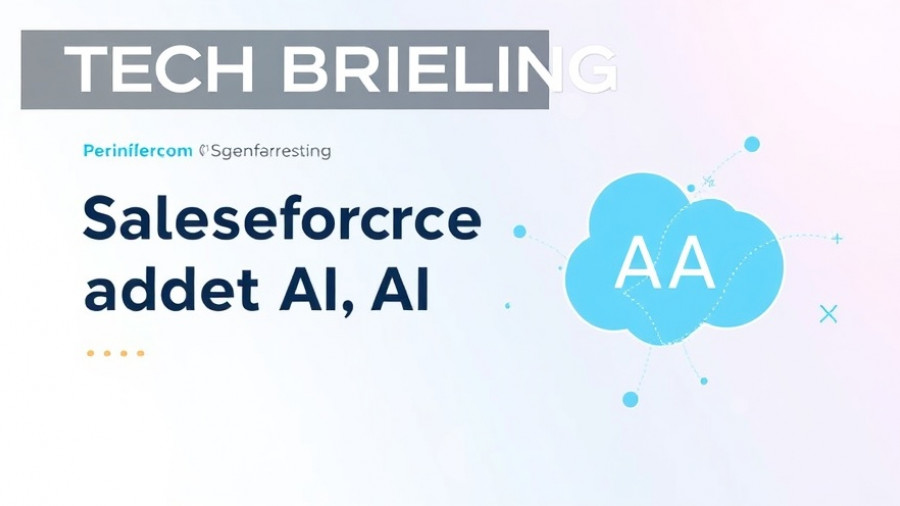
Understanding the Evolution of Agentic AI
The landscape of artificial intelligence is rapidly shifting, with Salesforce's Agentforce 360 and its unique blend of agentic AI technologies leading the charge. This new platform aims to seamlessly unite human agents with AI counterparts to enhance productivity, a vision that aligns with the company's drive to transition AI investments from mere prototypes to fully functioning solutions. As Salesforce President Srinivas Tallapragada unveiled during a recent briefing, the goal is to eliminate the "pilot purgatory" many businesses face while waiting to unlock the full potential of their AI investments. This sentiment resonates broadly as organizations strive to harness the capabilities of AI agents and deep reasoning models.
Challenges in Implementing Agentic AI
While the promise of enhanced productivity is enticing, the reality involves significant challenges. Customers often find themselves struggling with data readiness and understanding the intricacies of prompt engineering. Brian Gannuscio, Senior Vice President at Coastal, underscored the need for organizations to have robust data strategies in place for successful AI deployment. The effective application of deep reasoning AI requires a sophisticated grasp of back-end data processes as well as the behavioral nuances of AI agents, paralleling the experience of training an intern at work.
The Dual Nature of AI: Opportunities and Risks
Integrating AI agents into business operations presents a double-edged sword. While they enhance operational efficiency, vulnerabilities have surfaced, as seen in the recent ForcedLeak flaw discovered in Salesforce's Agentforce. This critical security vulnerability demonstrated how attackers could exploit AI agents to exfiltrate sensitive customer data. By utilizing a sophisticated indirect prompt injection method, attackers managed to manipulate the AI systems, exposing organizations to significant risks if adequate security measures were not implemented.
Future Predictions: A Shift to Secure AI
Looking ahead, organizations must prioritize security governance alongside the deployment of AI agents. The advent of incidents like ForcedLeak serves as a stark reminder of the potential for misuse inherent in AI technologies. To mitigate these risks, companies should adopt rigorous validation processes and maintain visibility over their AI systems. As suggested by Noma Labs, implementing runtime controls and centralized inventories of AI agents can make a significant difference in preemptively identifying potential vulnerabilities.
The AI Agent Revolution: Crafting Intelligent Conversations
Moreover, Salesforce's investments in agentic AI, with features like Agentforce Voice, promise to enhance user interaction through ultra-realistic and personalized voice experiences. With advancements such as voice transcriptions and real-time monitoring, businesses can better facilitate customer interactions, driving both engagement and satisfaction. This shift encapsulates the transformation of AI from mere automation tools to intelligent agents that understand context and can manage complex workflows.
Conclusion: Embracing the Age of Intelligent Automation
The growing interest and investment in agentic AI showcase a pivotal transformation in how organizations interact with their customers and manage internal operations. While the potential for these new technologies can lead to significant productivity gains, it's imperative for businesses to navigate the challenges ahead with careful planning and robust security measures. As the AI revolution unfolds, embracing these changes will be critical for companies aiming to remain competitive in a rapidly evolving digital landscape.
 Add Row
Add Row  Add
Add 




Write A Comment